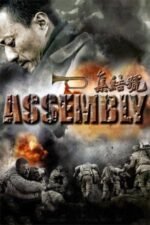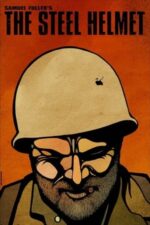Beyond the Battlefield: Exploring the Korean War Through Cinema
The Korean War – often overshadowed by its larger counterparts like World War II – remains a pivotal, tragically complex moment in history. It wasn't just a conflict; it was a clash of ideologies, a proxy war between superpowers, and a deeply personal tragedy for millions. And cinema, as always, has offered us powerful ways to grapple with its legacy. We don’t often talk about it as much as other conflicts, but the films exploring this era are surprisingly diverse and offer fascinating perspectives.
What strikes me most when revisiting these stories isn't just the action – though Snipers, for example, delivers that in spades with a chillingly focused portrayal of Zhang Taofang’s extraordinary skill. It’s how these films delve into the human cost, the moral ambiguities, and the sheer disorientation of fighting in a war where “sides” weren’t always clear-cut. Think about Earth Tremors. The film isn't just about political maneuvering; it's about Ju Yeong-nbok being torn between loyalty to his country and love for someone deemed an enemy – a heartbreaking dilemma that highlights the devastating impact of ideological divides on individual lives. It’s a reminder that war rarely exists in neat, black-and-white terms.
Then there’s Sacrifice, which focuses on the grueling logistical challenges faced by Chinese soldiers during the final stages of the conflict. These aren't glamorous battle scenes; they are about sheer perseverance and resilience under unimaginable pressure – repairing bridges while under constant bombardment? That’s a different kind of heroism, isn’t it? It reminds me a little bit of Das Boot in its claustrophobic depiction of men pushed to their limits.
Interestingly, the legacy of the Korean War continues to resonate even decades later. Northern Limit Line, for instance, demonstrates how tensions remain palpable between North and South Korea, highlighting that the "armistice" is more a ceasefire than a true peace. It’s a stark reminder that the wounds of war don't simply heal with time.
And let’s not forget MASH. While ostensibly a comedy, its satirical lens on military bureaucracy and the absurdity of war offers a powerful commentary on conflict itself – a tradition carried on in shows like MASH which offered a darkly humorous look at the Vietnam War. Even The Manchurian Candidate*, with its paranoia-fueled plot about brainwashing and political manipulation, taps into anxieties that were very real during the Cold War era and continue to feel relevant today.
Ultimately, these films aren't just historical records; they’re explorations of what it means to be human in times of conflict – grappling with loyalty, morality, and survival. They invite us to consider not only what happened but also why, and perhaps most importantly, the enduring consequences of war on individuals and nations.
What do you think? Have you seen any of these films or others that explore this period? I'd love to hear your thoughts!







































